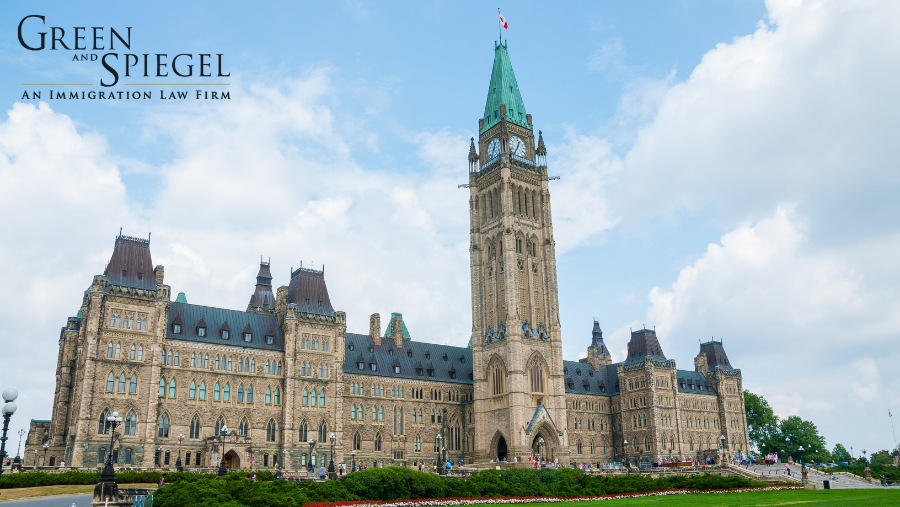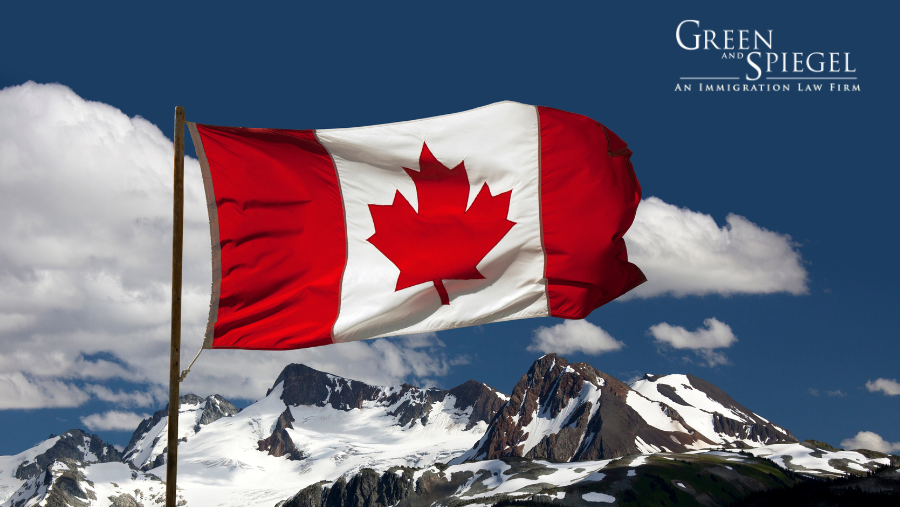AN OVERVIEW OF THE REPORTING OBLIGATIONS FOR CANADIAN RESIDENTS
As the summer season is right around the corner, many Canadian residents will be returning home from their vacations abroad and will be arriving through Canada’s major airports with gifts, treats and various currencies in their luggage.
Upon arriving in Canada, all Canadian resident travellers will be required declare what they are bringing back into Canada at a primary inspection kiosk or on a declaration card. To ensure compliance with the reporting obligations set out under the Customs Act and other various customs-related statutes, it is critical that all travellers be vigilant and truthful when making their declarations.
What Can I Bring into Canada?
Below are some of key rules relating to common goods or items that Canadian resident travellers should be mindful of when returning to Canada and completing their declarations:
-
Currency or Monetary Instruments totalling CAN$10,000 or more:
Any time you cross a Canadian border, you must declare any currency or monetary instruments you have in your possession that are valued at CAN$10,000 or more. The CAN$10,000 can include a combination of Canadian or foreign currency and monetary instruments, such as bank drafts, cheques and traveller’s cheques.
There are no restrictions on the amount of money you can bring into Canada. However, each traveller must declare currency or monetary instruments in their possession when the amount exceeds CAN$10,000 or more.
-
Gifts and Personal Exemptions
Depending on the duration of your absence from Canada, you may be eligible for a personal exemption when returning to Canada which means you can bring goods into Canada, up to a certain value, without paying regular duties and taxes.
In general, the goods that are included your in personal exemption must be for your personal or household use. Such goods can include souvenirs, gifts that you received from friends or relatives living outside Canada or prizes that you won.
Any gifts that you bring into Canada, whether you received the gift abroad or are bringing it back to Canada for others, are subject to personal exemption limits.
The personal exemptions available to Canadian residents returning from a trip outside of Canada are as follows:
- Absence of less than 24 hours: personal exemptions do not apply to same-day cross-border shoppers;
- Absence of more than 24 hours: you can claim goods worth up to CAN$200. If the value of goods exceeds this amount, duties and taxes will apply on the entire amount of the imported goods.
- Absence of more than 48 hours: you can claim goods worth up to CAN$800. If the value of goods exceeds this amount, duties and taxes will apply to the amount of goods that exceeds the permitted exemption.
- Absence of more than 7 days: you can claim goods worth up to CAN$800.
-
Food, Plant, Animal and Related Products
Travellers must declare all food, plant, animal and related products that you import into Canada. Failure to do so can result in your goods being confiscated or you may be subject to a fine or even prosecution. The type and amount of food products that can be imported into Canada varies depending on whether you are arriving from the United States or from a country other than the United States.
For travellers returning from the United States, some of the common food or plant items that travellers should be aware of include:
- Baked goods or candies: up to 20kg per person but cannot contain meat;
- Dairy products (e.g. cheese, milk, yogurt, butter): up to 20kg per person and quantities in excess of $20.00 may be subject to high rates of duty.
- Dried fruits and vegetables: up to 15 packages per person and not more than 250kg;
- Herbs, spices, tea, coffee, condiments: entry is permitted
- Meat and poultry products (e.g. jerky, sausage, deli meats, foie gras): up to 20kg per person with the identifying marks clearly indicating what the product is and proof of country of origin.
- Meat and poultry (fresh, frozen and chilled): up to 20kg per person or one turkey per person with identifying marks clearly indicating what the product is and proof of country of origin.
For travellers returning countries other than the United States, some of the common food or plant items that travellers should be aware of include:
- Baked goods or candies: up to 20kg per person but cannot contain meat;
- Dairy products (cheese only): up to 20kg per person and quantities in excess of $20.00 may be subject to high rates of duty.
- Dried fruits and vegetables: up to 20kg per person;
- Herbs, spices, tea, coffee, condiments: entry is permitted
- Meat: up to 20 kg of cooked, commercially prepared, commercially sterile, and shelf-stable (i.e. safe at room temperature) meat in hermetically sealed, packaging per person. Fresh, dried, and cured meats are not permitted.
-
Personal Use Medications (i.e. prescription drugs and over the counter (OTC) drugs):
When importing prescription drugs or OTC drugs, the importation of medications must be for an individual’s own personal use or for the use of a person for whom they are responsible and with who they are travelling.
For both prescription medication and OTC medication, the drug must be in one of the following:
- Hospital or pharmacy dispensed packaging;
- Original retail packaging; or
- have the original label affixed to it which clearly indicates what the health product is and what it contains.For prescription medication, Health Canada may permit you to return from abroad with a single course of treatment or a 90-day supply, whichever is less based on the directions for use.
For OTC medication, you are permitted to import a single course of treatment or a 90-day supply, whichever is less based on the directions for use.
-
Cannabis (Marijuana)
Although cannabis is legal and regulated in Canada, it is illegal to take cannabis across Canada’s national borders, whether you are entering or leaving Canada. Taking cannabis across the border without a permit or exemption authorized by Health Canada continues to be a serious criminal offence subject to arrest and prosecution.
If you are entering Canada from another country and have cannabis in any form, you must declare it to the CBSA. Failure to do so may lead to arrest and prosecution.
-
NEXUS Card Holders
All members of the NEXUS program are subject to certain terms and conditions, in addition to the customs laws and regulations of Canada. Failure to comply with the terms and conditions of the NEXUS program or any violations of the customs laws of Canada can result in the cancellation of NEXUS and the loss of all privileges, regardless of whether the violation is intentional or due to negligence or carelessness.
Some of the key terms and conditions of the NEXUS program include the following:
- NEXUS members cannot use a NEXUS kiosk if they have more than CAN$10,000 of currency or monetary instruments of a certain value, unless otherwise exempted.
- NEXUS members cannot transfer his or her NEXUS card to another individual at the time of passage.
- NEXUS members cannot facilitate or attempt to facilitate the entry of a non-NEXUS member at the time of passage; self serve NEXUS kiosks can only be used by individuals who have a NEXUS membership and must be used separately even when travelling in groups. Accompanying children must also be NEXUS members in order to access a NEXUS designated lane or self-serve kiosk.
Depending on the nature of the violation, a person can be restricted from re-applying for NEXUS up to six years after the date of the violation if they have violated a NEXUS term or condition or up to ten years if they have violated the Immigration and Refugee Protection Act or the Criminal Code.
**Please note that the above information is only intended as a general overview of the rules relating to some of the common items and goods that Canadian residents are required to declare when returning to Canada and is not intended as a comprehensive list of all declaration obligations. Please note that these rules may be adjusted at any time and all travellers should check the Canada Border Services Agency (CBSA) Web
What Happens If You Don’t Declare or Don’t Make an Accurate Declaration
If a Canadian resident fails to make a declaration or inaccurately makes a declaration, the Canada Border Services Agency (CBSA) can seize your goods. Upon seizure of goods by the CBSA, travellers may either lose their goods permanently or may be subject to fine in order to reclaim the seized goods. The CBSA may also impose a penalty, depending on the circumstances and the types of goods.
If you receive an infraction for failing to make a proper or accurate declaration, you may be selected for more thorough examinations on future trips. You may also become ineligible for the NEXUS and CANPASS programs. However, a decision by a CBSA officer to seize goods or impose a penalty can be appealed within 90 days from the date of the seizure or enforcement action.
For more information about making declarations at the border or for assistance in appealing a seizure or penalty action, please contact Green and Spiegel directly.




